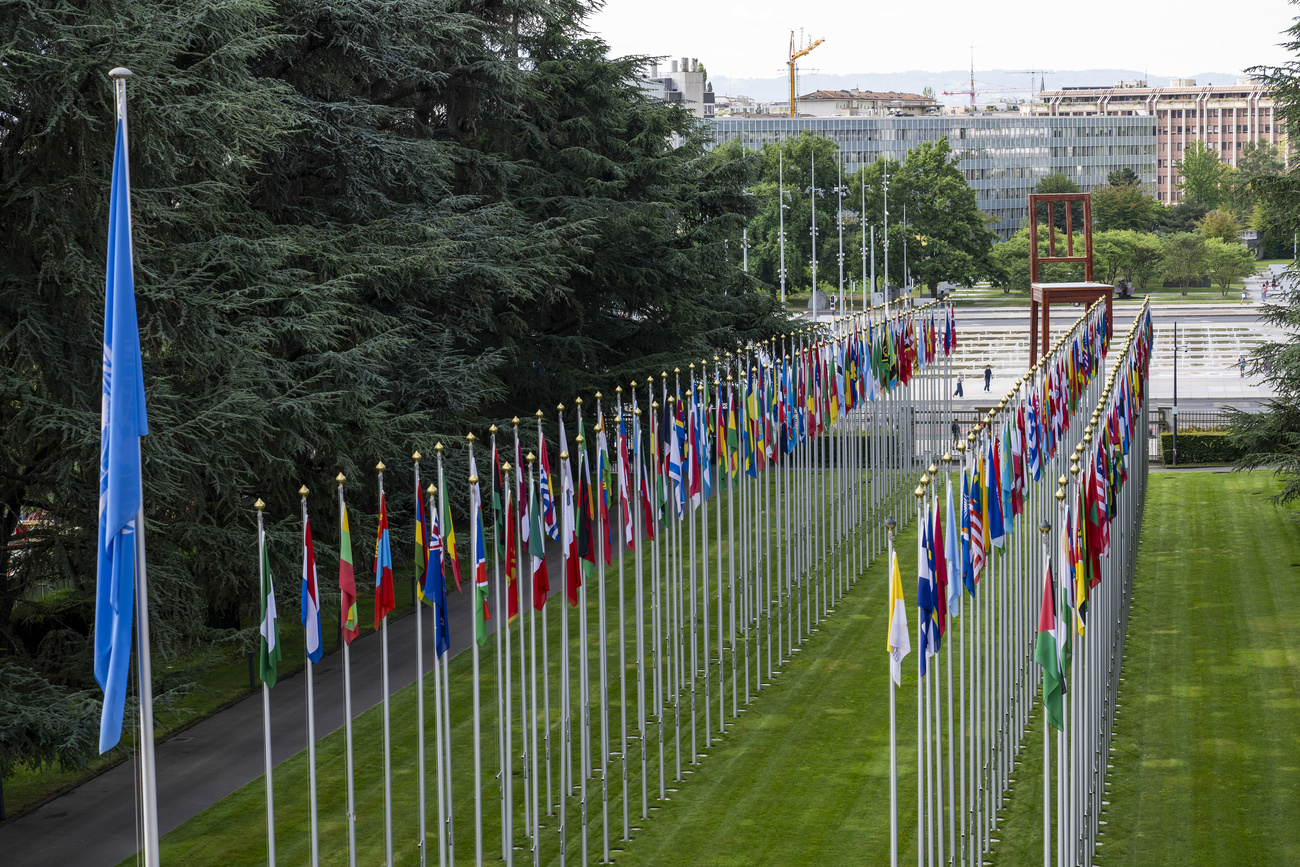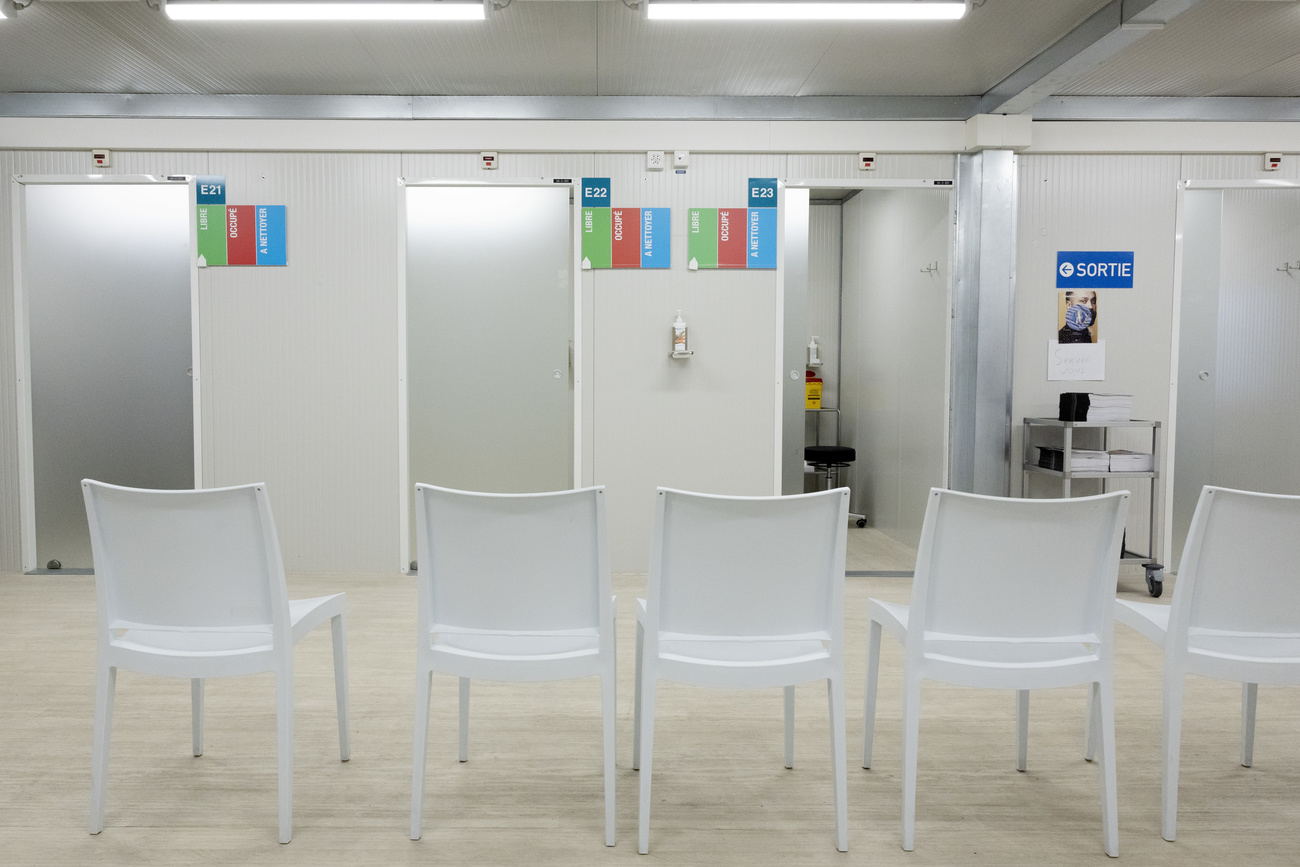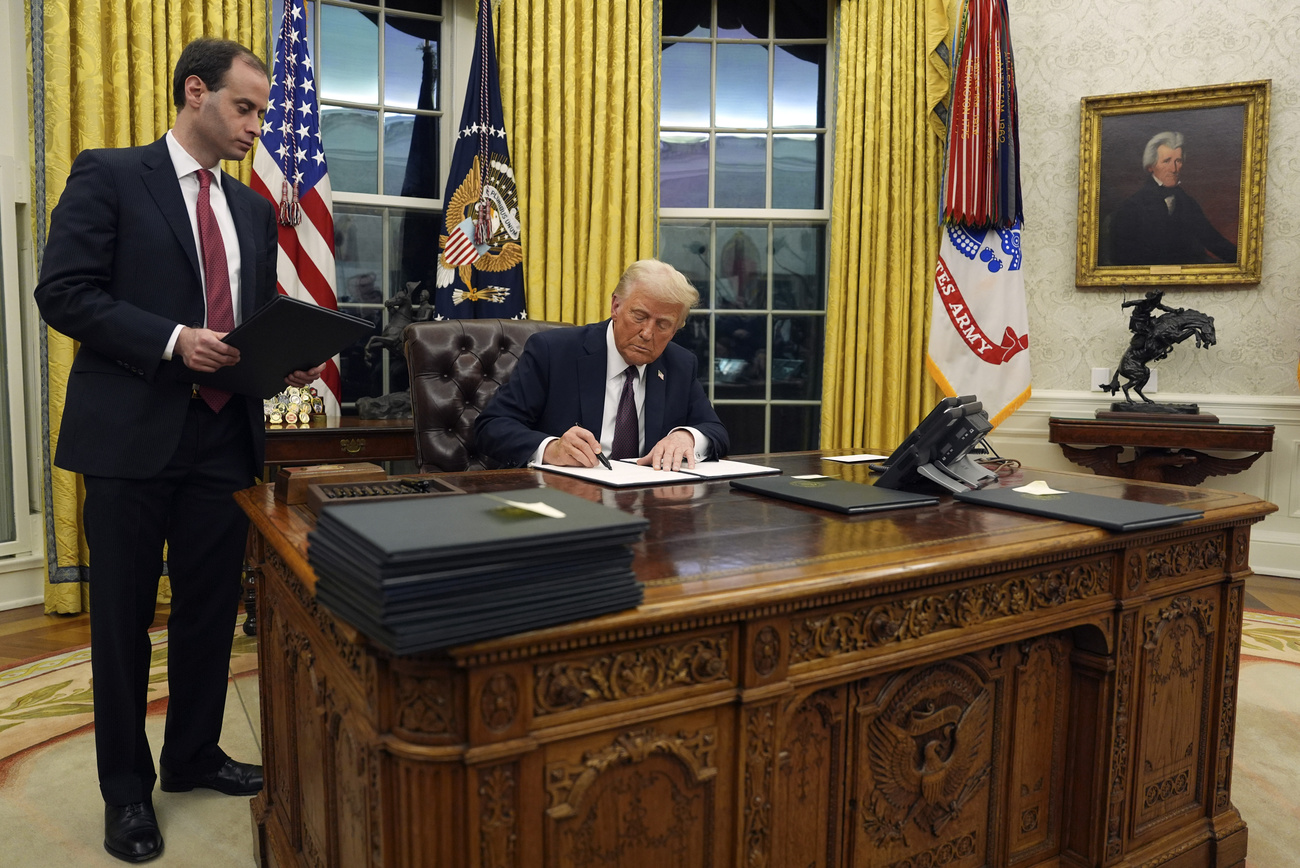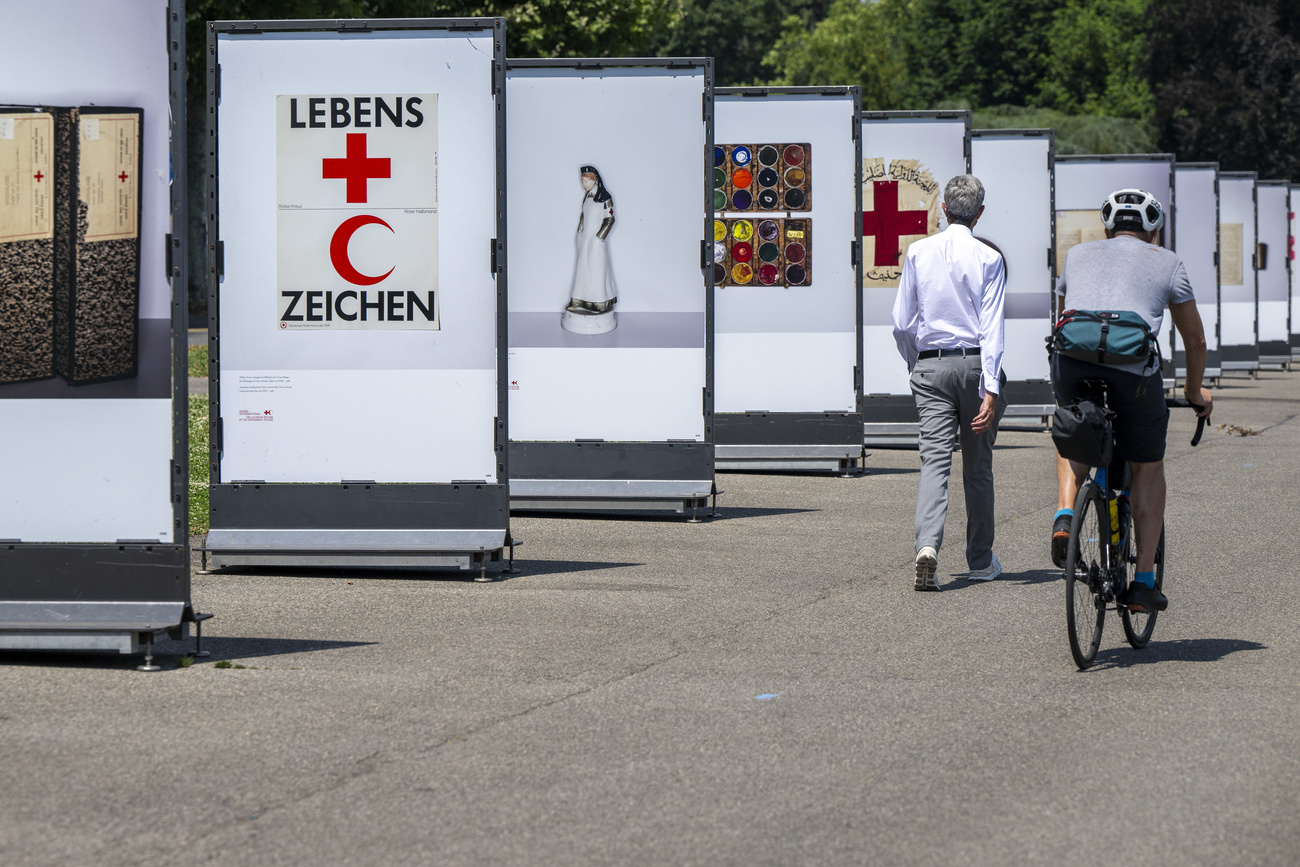
Is Geneva prepared for Trump’s – and others’ – cuts to foreign aid?

Geneva is bracing for an economic blow as US President Donald Trump cuts off foreign aid funding. The move could also affect the city’s status as a centre for multilateral cooperation unless donors and governments step up to fill the gap.
Barely sworn into office in January, the Trump administration announced an 83% cut to the US foreign aid budget of $71.9 billion (CHF63.4 billion). The cuts, many of which took effect immediately, have already had ramifications on Geneva, which is home to hundreds of NGOs, many of them dependent on the US for funding.
The US is the largest public donor to Geneva-based organisations, accounting for over a quarter (26.3%) of all donations.
To cope with the crisis, organisations in Geneva are firing staff and refraining from renewing short-term contracts. They have also downsized office space and shifted events online – changes that will significantly impact the city’s economy.
The International Organization for Migration (IOM), for example, has said it is laying off 20% of its 1,000 staff in Geneva. Ricardo, a consultant at IOM who spoke to SWI swissinfo.ch on condition of anonymity, was expecting his contract to be renewed at the end of the month. He has learnt that it won’t be.
“Since early February, many contracts have simply been cancelled,” he says. “The atmosphere at work is terrible. The uncertainty is weighing on everyone.”
If he fails to secure another job, Ricardo will have to return to his home country in Latin America within three months. Like him, many non-permanent residents – crucial elements of international Geneva’s workforce – may be forced to leave once their permit expires. “Geneva is a privileged bubble, but when a crisis hits, depending on your nationality, your situation can become precarious,” Ricardo says.

More
International Geneva in numbers
A critical financial stream severed
The cuts come after two decades of a steady rise in international contributions to Geneva-based organisations. In 2020, they reached $23.6 billion, with public donors representing 90.1% of the share.
“No international organisation receives less than 20% of its funding from the US. A freeze of this magnitude has a severe impact across the board,” says Julien Beauvallet, head of the Civil Society Service at the International Geneva Welcome Centre (CAGI).
But Trump’s decision is not an isolated case. It is part of a broader global retreat from international aid on the back of mounting debt and the need for countries to find money to increase their defence spending, among others.
The UK, Geneva’s second biggest public donor, recently slashed its development aid budget by 40%, while Switzerland cut its own contributions by 5.6%. “There is a global decline in confidence and interest among traditional donor countries when it comes to funding international organisations,” says Beauvallet.

These reductions come at a time when global humanitarian needs are soaring, exacerbating the financial stress on Geneva-based institutions. The United Nations Office for the Coordination of Humanitarian Affairs (OCHA) estimates that around 305 million people will need humanitarian aid and protection in 2025. This figure has doubled over the past five years.
The economic impact on Geneva
International organisations, missions, and consulates are economic pillars for the city of Geneva. They employ more than 33,000 people. Another 3,400 jobs are tied to the city’s 476 NGOs. Collectively, these entities inject CHF7 billion into Geneva’s economy each year – nearly 9% of the city’s GDP.
“Drastic budget cuts will force layoffs that could affect hundreds of people. We are facing the risk of a tsunami with a contagion effect,” says Vincent Subilia, the director of the Geneva Chamber of Commerce.
The economic impact of the cuts will extend beyond international institutions and spread to the hotel and tourism industry, as well as real estate. “These organisations are part of Geneva’s ecosystem. If they are affected, Geneva’s economy will be too”, Subilia says. “Hotels, restaurants, taxis, and suppliers will be directly struck.”
CAGI has meanwhile been contacted by organisations seeking to reduce their office space, while many in-person conferences are shifting online, further denting the hospitality industry.
Geneva’s tourism sector, which recorded over a million overnight stays in the second quarter of 2024 – a record high – now faces uncertainty. The Geneva Tourism & Congress Foundation says it expects a decline in bookings in the coming months as international events shrink in scale.
A blow to Geneva’s global standing
Beyond the economic turmoil, Geneva’s reputation as a hub of multilateral diplomacy is under threat, says Subilia.
Beauvallet fears that some NGOs may have to close. “It’s a risk as some organisations depend on the US for 40-60% of funding”, he says.
While private donors could mitigate some of the damage, American contributions remain unmatched. “We don’t see any immediate response from other countries, unlike during Trump’s first term, when European nations stepped up funding for initiatives like reproductive health and human rights,” Beauvallet says.
The idea that new donors like China or Gulf states could fill the void remains highly speculative. They have not shown any particular interest, and even if they wanted to, “these transitions take time”, Beauvallet says, leaving Geneva exposed to financial instability.
Can Geneva and Switzerland step up?
To cushion the blow, the city of Geneva has released CHF2 million to help impacted NGOs while the canton has proposed a CHF10 million emergency fund to support affected NGO staff. However political roadblocks could stall these efforts. The canton’s parliament has so far rejected the urgency aspect of the measures, meaning the implementation could be delayed.
Subilia says the Swiss federal government should take a more active role in safeguarding Geneva’s international sector, as it is “a core part of Switzerland’s DNA”. Recently, the foreign affairs ministry announced an increase of 5% in its budget for international Geneva, which represents an additional CHF1.2 million per year.
Beauvallet sees the crisis as a potential turning point for the country: “Switzerland has an opportunity to strengthen its position as a hub for NGOs by providing stability and security at a time when international organisations face increasing financial uncertainty,” he says.
What future for Geneva?
Experts agree that the city must in any case reduce its dependence on a handful of major donors. A study by the Geneva Graduate Institute found that 75% of funding comes from just 15 sources, making the model “untenable” for Geneva’s government.
For Subilia, there’s a lot at stake. “If Geneva’s international sector collapses, the impact will be felt not just locally, but across global governance. The next few months will decide whether Geneva can maintain its status as the world’s diplomatic capital.”
Edited by Virginie Mangin/dos
This article was republished on March 22 to specify that the canton of Geneva had rejected the urgency aspect of the aid relief measures, not the measures themselves.

In compliance with the JTI standards
More: SWI swissinfo.ch certified by the Journalism Trust Initiative









































You can find an overview of ongoing debates with our journalists here . Please join us!
If you want to start a conversation about a topic raised in this article or want to report factual errors, email us at english@swissinfo.ch.